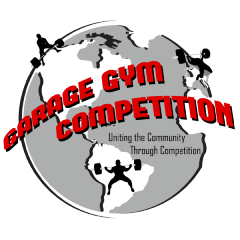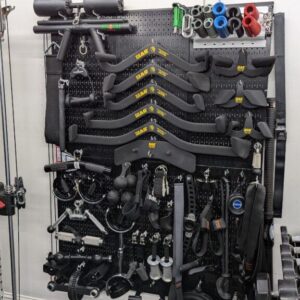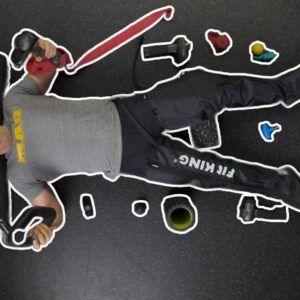GGC vs “Real” Powerlifting Meets – Part 1
The Garage Gym Competition has never attempted to take the place of in person sanctioned powerlifting meets. These offer a unique experience from a variety of federations across the planet. The GGC offers a similar experience, but with a large majority of the typical “barriers to entry” removed. You can get pretty dang close to the meet experience with one of our GGC Meets, but there are some differences.
We’ll discuss the comparisons here, as well as share tips and tricks on how you can leverage the GGC. What to expect going from the GGC to a sanctioned powerlifting meet, and other helpful information.
In Part 1, we will discuss some of the key differences.
You can find all parts of this series here:
- Powerlifting Meets: A Deep Dive
- Powerlifting Meets: A Deep Dive – 2
- Powerlifting Deep Dive Part 3: Q&A
Table of Contents
Key Notes
Powerlifting meets are awesome. The Garage Gym Competition is awesome. Both are the same in some ways, and VERY different in others. Best to understand before you choose one over the other.
Transparency Note
Some of the items and links in this article might be affiliate links, or might be linked to a Sponsor of the Garage Gym Competition. These links and sponsorships help fund the website, the competition itself, the newsletter, non-profit donations, and everything else we do FOR FREE here at the GGC. I like to be transparent so you know what is up. I appreciate the support if you choose to use the links.
Location of Powerlifting Meets

Easily one of the biggest differences in the GGC vs a “real” meet, is location. If you own a home gym, you can lift right there. A sanctioned meet requires you to travel to a different location, possibly a hotel or some type of civic center. Depending on the length of the event and travel needed, you might be in for a plane ride or substantial drive time, time off work, and even a hotel stay.
These things, beyond being costly, can be a total deal breaker for those with kids, those that live in more remote areas, or otherwise can’t manage leaving for days at a time. For me personally, this was one of the biggest factors in never stepping on the “real” platform. Powerlifting meets weren’t very common in my area, so travel time was a must. My wife worked Sundays for the first 8ish years of our relationship. If a meet would have required her to travel on Sunday or even late on a Saturday, she is already out. And I wasn’t about to give up my ONLY day off with my wife for a meet. So, travel and location details were a done deal for me and many others.
Or as Rob from @vintageweightspgh said “the GGC doesn’t take an entire day, if not weekend”.
Fees

The GGC is free. Always has been, always will be. You can make donations to non-profits, you can buy a shirt, you can buy equipment from our sponsors, we might have other ways for you to support the GGC financially, but at the end of the day, you don’t have to spend a dime to participate if you don’t want to outside of the equipment in your own home, which if you go to a friend’s house, you are in for even less.
Any in-person meet is going to require you to pay a fee. Typically, you are paying fees to the federation to be a member, AND fees for competing in each competition. As of writing, it is $78 for a new USPA membership, $66 to renew each year, or you can save yourself the hassle (???) and get a lifetime membership for the low low cost of $2500. Oh, and if you are outside of the US, those fees go up. USPA costs look to be REALLY close, so I’m not going to list those again.
You can expect to pay anywhere from $25 to $100 for a local meet registration. Yes, you have to pay to be able to pay to lift. So, if you compete once a year, you are looking at about a MINIMUM of $100 just for registration fees.
While certainly not breaking the bank, $100 for the opportunity to lift when you already have everything at home?
Equipment

The GGC honestly doesn’t care what equipment you use. We even made exceptions during COVID to allow brooms, cinder blocks, and other non-weight type implements to count. But you can use whatever you use regularly at home, regardless of any certifications.
The federations make a TREMENDOUS amount of money by setting specific standards for equipment, and then requiring companies to have their equipment certified to those standards. There are posts discussing the IPF charging companies $10,000 to certify a SINGLE bench shirt. Meaning, if the company makes 5 different types of shirts, they are looking at $50k to get them all certified for ONE FEDERATION. Add that number up for belts, singlets, straps, wraps, sleeves, and you are looking at hundreds of thousands of dollars. Barbells, racks, plates, and everything used in the competition has to be certified and approved.
What Does That Mean To Me?
I can’t comment on what every federation charges, and these fees were referenced in 2015 so I assume they are much higher today, but you get the idea. These fees mean the companies have to charge the athletes more money for their equipment. These fees mean that smaller companies can’t compete. These fees mean that powerlifting gear can be purchased, and then NOT qualify for meets, or potentially qualify one year but not the next! These fees mean a lot of things that all boil down to, you are at the mercy of a company paying high fees to another company to allow you to use the gear you’ve already purchased and have been practicing with.
In the GGC, wear whatever you want, use whatever bars, plates, racks, you name it.
@thedaveschwartz says “the GGC is clothing optional” and @bigbadwolf24 says “the GGC doesn’t have mandatory bars”
Rules From Powerlifting Federations
The USAPL Rule Book is 71 Pages Long
This is a BIG one, so I saved this one for last. In the GGC, no one is coming after you and disqualifying you for a squat that might be a little high. You can use specialty bars to lift on, skip the weigh in, and basically do whatever you want. You need to lift during the week of the competition, perform a 1 RM of something that resembles a Squat, Bench, and Deadlift, and upload/hashtag/complete the form.
We have a set of rules you can check out, but they are very loose.
- get to the event at a very specific time slot, weigh in, wear the approved singlet and gear
- be given a number for when you will take your lifts based on the number of lifters there
- take your 3 attempts as you are called to the platform
- have a specific timeframe from when you are called to the platform and when you are required to lift
- If you CRUSH your third attempt, you can’t come back for a fourth except under specific rules
In a sanctioned meet, the rules are anything but that. You are going to
All three lifts will require certain commands to lift, pause, lower, and finish the lift. You must do so in one clean motion, amongst about a thousand other little items.
Judges
The kicker to it all, is that judges are human beings and calls are subjective. Squats that are CLEARLY high have been approved, and Squats that are clearly buried have been denied. Athletes can come out feeling robbed, and rightfully so, as they watch other attempts get approved that were a slap in the face of theirs. These could be done for political reasons, just because the judge thought they saw something, or any number of inconsistencies. Just take some time to look at the different approved lifts across different federations and it’ll get even more crazy. Judges are much more likely to approve big name lifter lifts, especially with records on the line, for fear of backlash.
The rules, really, can be brutal, and outright difficult or impossible to abide by for athletes with certain mobility and injury issues, and they lead to a lot of online cursing, rambling, and complaining.
We dropped all of that for the GGC and just ask that it looks like a Squat, Bench, and Deadlift. As a HUGE number of our athletes have said “the GGC is judgement free”.
Is it all bad?
I spent the last few paragraphs telling you why the GGC is good and sanctioned meets are bad. In reality, that isn’t the case. When you have a sport, there have to be rules. Those rules attempt to create an even playing field. If we said that one dude in Texas could lift with bumpers while the other lifts concrete and a homemade bar and then some guy in Canada just throws his hands in the air and calls it a 1000lb bench, well… that isn’t a sport. You have to have very targeted rules, regulations, gear, equipment, testing, and more. And in a sport where a few extra pounds of bodyweight can be the difference between world records and not, or a ¼ inch of range of motion, or a ½ second versus a second pause, there are bound to be some complaints.
The sanctioned meets are “Real” Powerlifting. If you want to get your name on the board, the huge list of negatives is what makes it a sport. Hitting a big PR in your garage with your own equipment on a day you want to test, when you are ready to rock, listening to your own music and in a controlled environment is wildly different than doing so on the competition clock, in front of a bunch of random people, with little to no control over anything going on that day. And doing all of that while being at the mercy of the judges changes the game entirely. It is the difference between a pick-up game of basketball at the local YMCA and the NBA.
David from @davidkoch117 said “the GGC doesn’t have the pressure of performing in front of an audience and the pressure of the judges failing your lift”.
Wrap Up
If you plan to jump from the GGC to a sanctioned meet, you likely need to prepare for a few things. We’ll cover that in the next parts of this series.
For now, your take away should be this… The GGC was made to be inviting, inclusive, and easy to participate. So we removed most of the rules, judges, judgements, and barriers to entry. Ultimately, the GGC doesn’t take itself too seriously… its only powerlifting.
Sanctioned meets have all of those things because ultimately they need to. To adequately and fairly judge one lifter to another, you need standards, judges, rules, and as close to an even playing field as possible. They need to take things seriously, because the people competing are often times there to win at all costs.
📌Enjoy Powerlifting? Want to enter a FREE competition with thousands of dollars in prizes and donations to non-profits? Check out our next event!
🏅 Own a home gym? Like to save money? Check out my full list of discount codes.



